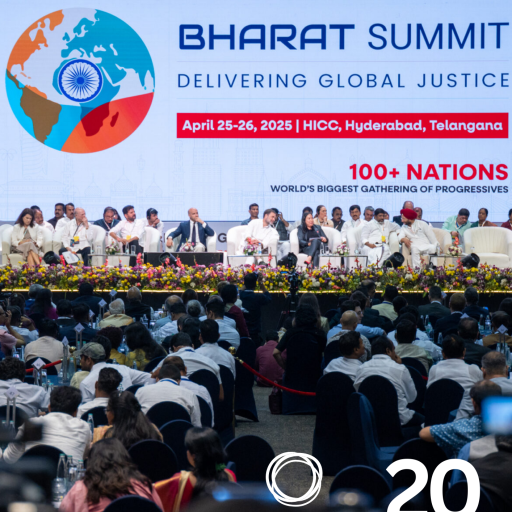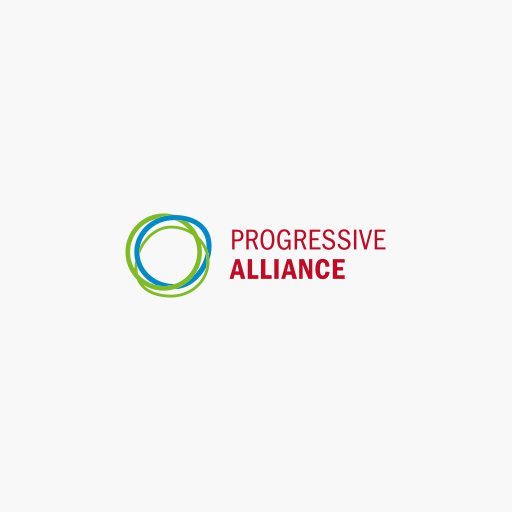By President of the Republican People’s Party (CHP), Turkey, Kemal Kılıçdaroğlu
Extraordinary efforts are being conducted globally through interdisciplinary cooperation in order to fight COVID-I% which emerged from Wuhan, China, caused by coronavirus. Biologists, chemists, physicists, mathematicians, pharmacists, engineers, software developers, medical community are all acting in unison against the COVID-19 pandemic. Members of the medical community are in a race to keep millions of infected people alive while risking their own lives and their families without hesitation. Social scientists are trying to define the situation through strict coordination with medical and scientific studies, generating forecasts about the post-pandemic world. It is widely accepted that «nothing will ever be the same again.»
If so, then «What will the future look like if nothing will ever be the same again»? The appropriate response to this question lies in the historic experience of Left / Social Democrat / Socialist parties which have been offering the most reliable solutions to all the national and international challenges for centuries, even if they are not in power.
We had perceived the world as a village with mobile phones in our hands, smart televisions in our homes, online nemtorks connecting us to the rest of the world through our social media accounts. What we had forgotten was that the world had always been a village ever since it started to exist. Yes, the world has always been a village throughout the timeline of the history of mankind.
The economy of this village has mainly been run with the organised and institutionalised objective of «minimum cost — maximum profit» for a very long time. Governments themselves have been ioining the bandwagon of this obiective of national and international capital in the name of «neoliberal» policies. One of the bitter outcomes is that the wealth of the richest 2.153 people exceeded the total wealth of the poorest 4.6 billion people in the world in 2019. Furthermore, 86% of the global GDP of nearly USD 87 trillion is generated by the G20 countries. And those G20 countries are failing to protect themselves against the virus in spite of the economic power they have.
That is because the virus advances through the deep social fractures caused by neo-liberal policies; it is fed by inequalities, and traveling through the inequality-generating paths walks into the homes of G20 countries. Unsurprisingly, the balance of the global economy, which was proclaimed to be well-kept, is upset, geopolitical calculations are being cancelled out, financial markets are being shaken. The world is approaching to a new «Great Depression».
Let us go back to the question then; «If nothing will ever be the same again, what will the future look like»? As leftist democrats, «what kind of a fight do we need to pursue to reach out to the new world»? In November 2017, during my speech at the Council of Europe, I had made the call UDemocrats of the world, unite!» against authoritarian governments, referring to Karl Marx’s motto: ‘Workers of the world, unite!». Significance of the call I made three years ago becomes even more clear today, when the world is going through times of COVID-19; all democrats must unite now. This is not merely a call to the left; it is a call to embrace each and every group who defend the concepts of democracy, equality, freedom, rationality, transparency, justice and merit, encompassing the specific conditions of each and every country. Were a new post-COVlD-19 civilisation to be built, it should only be founded by democrats. We must resist, through international solidarity of Democrats, the narrative which suggests that «COVID-19 will further strengthen oppressive and authoritarian governments, lead to the emergence of new ones, and practitioners of neo liberal policies will persist without any attempt of self-criticism». Democrats cannot leave the fate of the post-COVID-19 world into the hands of oppressive and authoritarian governments or those who implement neoliberal policies.
The unity of democrats must aim transition to a new production and consumption policy as well as expansion of socio-economic living conditions of citizens of the developed countries to become the rights of entire humanity. This transformation will also mean a return to the «social state» policies, whose foundations were laid in the aftermath of the World War Il in Europe and which have gradually been abandoned in the last 40 years, along with new complementing policies. Therefore, I am referring to an international cooperation and solidarity that will shape the future of the world with new policies of the social state. It is time to discuss the building of a new civilisation which would oblige international solidarity against the ill concept of governance which has dragged the world under the yoke of all kinds of inequality.
The pandemic has shown us once again, that the fates of humanity and countries alike are interconnected. For example, each country that has been running a budget surplus can protect its citizens against COVID-19 at a maximum level. However, in the mid-run, the failure of other countries in the fight against pandemic would mean the failure of that country, too. Furthermore, this process cannot be viewed simply as an economic problem. We have to accept that the economic dimension of the problem is as important as our moral/ethical responsibilities at individual and universal level. We have to recognise that the safety of the entire world is dependent on the safety of the least developed countries of the world in every sense. Let us not forget that a chain is only as strong as its weakest link.
I have previously said that the world is a village. Then, we have to think about a future in which we are able to look our friends and our neighbours in the eye, as a country and as individuals, while the COVID-19-related healthcare and economic crisis is deepening further. We have to recognise the need for building a new understanding. In a nutshell, we have to start building a humble, solidarity-driven civilisation at a global level while also reminding «the West» about its responsibility, its duties. The whole of the rights granted by this new civilisation must be ecological, egalitarian, humane, fair, democratic, pro-freedoms and as underlined above, they must be humble and pro-solidarity-for everyone, in every field, and at the international level. The course of history is changing. The crUX of the matter is how and in which direction it will change and which side we will be on when it does. We shall be on the side of the people and democracy, together with the people and the rest of the democrats of the world. In this context, allow me to submit six propositions to your consideration:
- We should implement an international program directed towards democratization not only in our own countries but also in the rest of the world. This program should be designed with a view to paving the way for the democratic transformation of the countries, not for intervening into their domestic affairs. For instance, before the pandemic, problems of migrants ranked first among our main global agenda items. Lack of democratization and poor economic performance in their own countries had been the reasons for migrants to look for a better future in other countries. The western cluster of civilized countries, although they were disturbed by the orientation of migrants towards their countries, remained indifferent to the underlying causes of immigration due to their policies based on their own interests. Pandemic has shown us that this indifference can no longer be tolerated.
- We should focus on a new economic plan to completely eradicate inequality of income distribution at the national and international levels. In this context, we must ensure a minimum income level for our people which would also have an international equivalence. We should support each other to implement the «Family Aid Insurance» policies.
- We should plan the education policies in such a manner that would guarantee international harmony without undermining the specific conditions of individual countries.
- We should enable the right of unconditional access to healthcare services free-of-charge. As one of the most important areas of enforcement for the welfare state, we must restructure the healthcare services with enhanced and more efficient role for the public sector, in coordination with the private sector. Preventive and primary healthcare services must be planned in line with this direction.
- The right to housing must be under the absolute guarantee of the welfare The home-centred strategy pursued for the prevention of the pandemic has demonstrated that housing policies especially targeted at low-income groups and a healthy urban planning are vital. Healthy access to food is also a fundamental right and should be ensured by rapid structural reforms.
- New policies inspired by the common future of welfare state should be designed to include the underdeveloped and developing countries. These policies should not be guided by advanced countries’ capital groups, but by our conscious and ethical responsibilities.
If we try to implement a democratic policy based on the six propositions summarized above, we can secure our common future. The choice we will make in the scope of these six topics will constitute a hope for the world, which is searching the answer to the question: ‘What will the future look tike if nothing will ever be the same again?»
With my best wishes for enduring solidarity and friendship.
Kemal Kılıçdaroğlu
President of the Republican People’s Party (CHP)


![Headline: Hier bitte das Thema [ Headline] 24.10.25, Lucerne, Switzerland, Progressive Alliance PA women conference](https://alianza-progresista.info/wp-content/uploads/elementor/thumbs/MAW251024mw859033AdobeRGB-scaled-recq0qxu9kb6pncdi2i7wo6ttne03ppnu58zxxdc74.jpg)
![Headline: Hier bitte das Thema [ Headline] 25.10.25, Lucerne, Switzerland, Progressive Alliance PA women conference](https://alianza-progresista.info/wp-content/uploads/elementor/thumbs/MAW251025mw860402AdobeRGB-scaled-recs8kegm3kqlleif2kq512xsjz2qfl3t7kc0t0tts.jpg)
